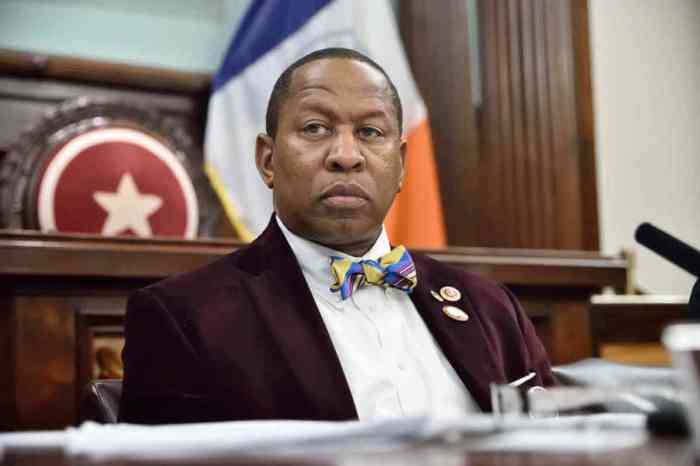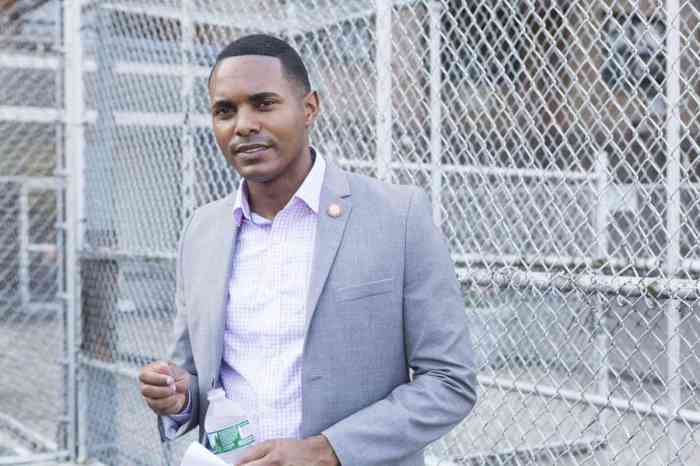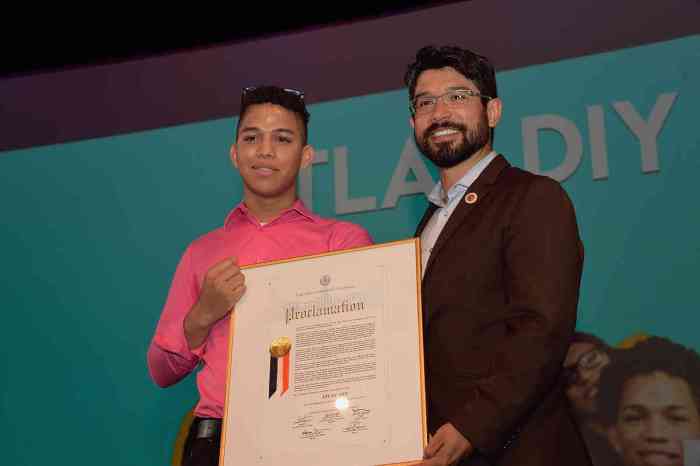The New York City Department of Education (DOE) has just appointed Jared Fox, an out gay educator, as LGBT community liaison, a position for which LGBT education activists have been agitating for more than three decades.
“I have a huge sense of urgency,” Fox told Gay City News. “We’re trying to make sure that LGBT people see themselves in the curriculum and that all students see LGBT people in the curriculum.”
In his first month on the job, he is meeting with people at all levels of the school community to figure out how best to make systemic change.
Big move in 40-year battle to make classrooms safe, educate all students on LGBT people
Part of being a liaison, he said, “is listening and part of it is getting things done. I want to get things done by building a long-term vision.” Fox is not just burrowing into the system. He wants to hear from people with ideas and is giving out his e-mail: Jfox16@schools.nyc.gov.
Out gay Councilmember Daniel Dromm of Jackson Heights, chair of the Education Committee and himself a former out grade school teacher, secured the $200,000 funding to pay for the liaison position and related activities in this year’s budget. He told Gay City News that Fox “is charged with coming up with a strategic plan for making the DOE a more inclusive environment for LGBT students, teachers, parents, and families” and that his committee will hold a hearing in June to monitor progress. Dromm said he wants a list of all schools with a gay-straight alliance (GSA) and hopes that the DOE central office at the Tweed Courthouse will finally have an LGBT Pride celebration.
“Invisibility is our biggest enemy,” Dromm said. “We can no longer tolerate discrimination anywhere in the city but especially not at the DOE, and now that I have oversight I will make sure that is the case.”
Lois Herrera, CEO of the Office of Safety and Youth Development, said in a written statement, “Our goal is to promote a positive school climate and culture that supports students in their academic and social growth.” Fox, she said, “will be working with city agencies and community organizations to help schools support, protect, and provide resources to LGBT students, families, and community members.”
Fox said that among the groups on an advisory committee that is meeting monthly on these issues are city agencies — including the Department of Health and Mental Hygiene, the Department of Youth and Community Development, and the Administration for Children’s Services — as well as such community organizations as the New York City Anti-Violence Project, the LGBT Community Center, pride community centers in Brooklyn and Staten Island, and the Ali Forney Center for homeless LGBT youth.
To finally get a point person on LGBT issues in New York’s public schools, it took Dromm’s leadership, a more sympathetic administration in Mayor Bill de Blasio and Schools Chancellor Carmen Fariña, and the advocacy of groups ranging from the Gay Activists Alliance and the Gay Teachers Association in the 1970s, the Hetrick-Martin Institute in the ‘80s, and the Education Coalition on Lesbian and Gay Youth (ECOLaGY) in the ‘90s to the Gay Lesbian and Straight Education Network, or GLSEN, from the ‘90s to today. The culture has also progressed enormously on LGBT issues, but the schools — often scared of political fallout from parents objecting to any mention of homosexuality to their children — have been laggards, until recently.
Fox, 28, was himself the founder of the New York chapter of GLSEN. He had the experience of coming out at age 13 in the eighth grade and being bullied in a Catholic school in Cleveland, which led his mother to get him transferred to a public school where he was able to establish a GSA. His degree from Lake Forest College is in community organizing, activism, and politics, and he taught English for three years at a school near New Orleans where he also started a GSA.
Fox has worked for the DOE for the last three years in its Division of Instructional and information Technology, where “we spearheaded a movement to have a tech person in every school. Now over 80 percent have a tech person. We need to have the same success with LGBT students. It’s not like with computers and knowing how to turn them on and off. It’s about kids’ lives.”
Fox is working with the Office of Research to do a survey “and identify one person in every school to liaise with.” He explained, “It could be a GSA advisor or a teacher or a Respect for All coordinator.” The system’s Respect for All program is an overall anti-bullying program launched eight years ago.
In a system with more than a thousand schools and 1.1 million students, a lone community liaison faces a daunting challenge. To involve more school staff, the DOE is piloting a program that has staff wearing a badge that says “Out for Safe Schools” and has a rainbow and the DOE logo on it.
“It’s a visible representation of being an ally,” Fox said. “Students know if a teacher is wearing that badge that that is a person they can talk to” about LGBT concerns. This atmosphere-changing program has been enthusiastically taken up by large percentages of teachers in other school systems, including Los Angeles. In New York, 5,000 badges have been printed, and officials intend to have them on 8,000 staff by the end of the school year. The Out for Safe Schools campaign “also includes training for teachers and staff to provide them with support and resources for a successful implementation,” the DOE said.
“A lot of this is about a kid being able to know they are not alone,” Fox said. He sees more teachers who are out to their students than ever before, but this badge program allows students to see thousands of allies, LGBT and otherwise, in their schools.
Dromm said he wants to see LGBT-specific posters up in every school next to the Respect for All posters that aim to counter bullying. The Education Committee chair is pushing to have Fox’s position baselined by the administration in the June budget negotiations and expanded by the Council. The current funding includes $38,000 for the Lambda Literary Foundation to bring LGBT authors of color into the schools to dialogue with students.
“I’ve asked them to target schools that haven’t had programs,” Dromm said.
The budget also has $50,000 for Teachers College to do a full-day workshop for 150 instructors on “how to integrate LGBT issues into curricula,” with a special emphasis on “the intersection of race and sexual orientation,” said Dromm.
While AIDS education has been mandated since the 1980s and sex education more recently, Fox is concerned “that for many, it is heteronormative” and that there is “no conversation about safer sex practices” other than condoms and the availability of treatments such as pre-exposure prophylaxis, or PrEP, a drug regimen aimed at preventing infection in those who are HIV-negative. To correct that and other shortcomings, Fox is meeting with “curriculum people, library facilities, every division, and every department.”
Thomas Krever, the longtime executive director of the Hetrick-Martin Institute (HMI) for LGBT youth, met with Fox and said, “I’m ecstatic that this position now exists. It sends a very powerful message to young people and their families and the entire school community that there is now accountability for creating more inclusive schools and insuring that all young people are safe.” Because schools had been egregiously unsafe for LGBT students, HMI started the Harvey Milk High School in 1985 and is still its home, though it has been run by the DOE since 2002.
This position is definitely the right step forward,” Krever said. “In a large system, getting the information from Tweed to the young people is a process and now we have someone to close that loop.”
“For me, it’s the culmination of 25 years of work with ECOLaGY and other groups,” said Dromm. “In the early days, we couldn’t even get a letter from the chancellor” telling staff to be more inclusive and sensitive on the issue.
“This is a beginning step,” Dromm said. “We’re still going to have to fight.”




































